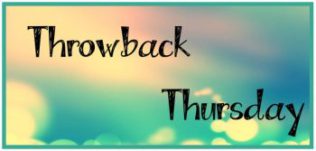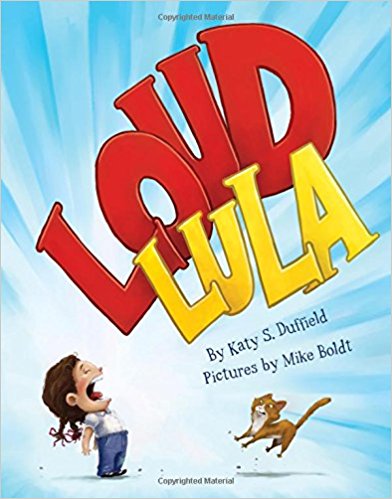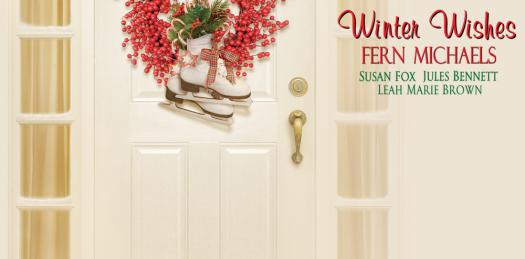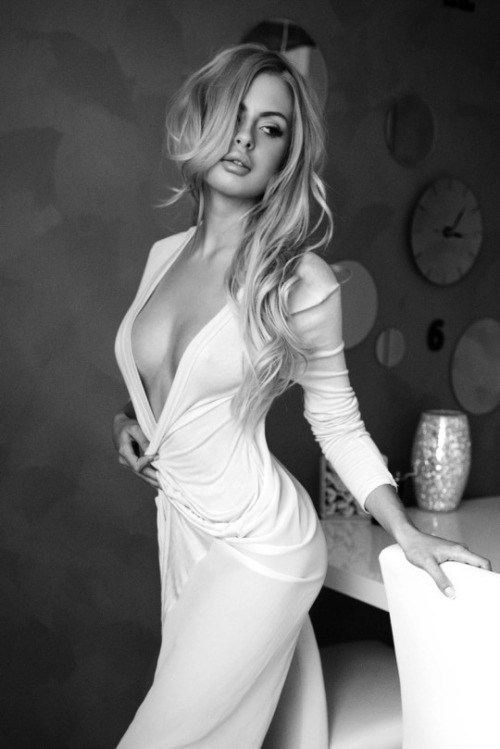I’m so excited that I was able to go to The Strand’s romance event, Romance and Respect, featuring authors Joanna Shupe, Loretta Chase, Tessa Bailey, Megan Frampton, and Tracey Livesay.
Lately I’ve been satisfied posting some photos and a short recap on Instagram rather than writing up full posts like I have in the past, but I enjoyed this panel so much that I had to share it with you.
I had fun before the event even started, catching up with people and hanging out with my romance book club, who are the absolute best for saving me a seat front and center!! (Seriously, thanks so much Holly!) The event had some great sparkling rosé and mini cupcakes that they were handing out, so we all partook while celebrity spotting. We saw Sarah MacLean, Eloisa James, Suleikha Snyder, and Maya Rodale in the audience!
The moderator, Denny Bryce, started off with a great question about what romance stereotype the authors want to drop off a cliff. The authors’ answers varied from bodice rippers to saying they’re too formulaic and all the same to calling romance soft porn. Bryce also asked Chase, who’s dominated historical fiction for years, how she’s seen attitudes towards romance change in the course of her career. While Chase said it’s certainly gotten better and people tend to be more respectful, she still braces herself for a bad reaction from people when she tells them she writes historical romance.
The panel then shifted to discuss what changes they’d like to see in the genre, and Livesay had a great response about wanting to see more diversity of characters, diversity of authors, and diversity of those in the publishing industry (check out The Ripped Bodice’s diversity report too see how little diversity there is in the romance genre). Someone later asked the authors for recommendations for authors of color, and they said that Women of Color in Romance is a great resource. On a different note in response to the question about change, Shupe had a great answer too about the intersectionality of history and how history isn’t one dimensional and there’s a lot out there that we’re not seeing in the genre now.
When asked about the selling points of the genre, Bailey answered that romance allows the reader to be anyone they want to be when they pick up a novel, commenting that she doesn’t think any other genre delivers that in such a relatable way because it’s safe and you always know there’s going to be a happily ever after. And Chase chimed in saying that romance is ultimately genre fiction and that despite happy endings being framed as a bad thing, they’re great to read.
The panelists talked shop for a while, starting with a conversation about how they create their characters and what brings them to life. Livesay said her process is boring and that she works backwards, starting with a plot and then thinking about the type of person who fits the plot. She also really likes giving them small details that she picks up from her life and her friends’ lives, like the way her husband laughs with his whole body, because it makes them more real and and identifiable and three-dimensional.
Continuing with that question, Bailey said an author at a convention she attended suggested learning about your characters by writing the worst moment in their lives, because once you know how they react, you know everything about them. Shupe added that she really gets to know her characters through the dialogue between the hero and heroine, while Chase said she occasionally has fully developed characters come to her, but that usually its a process until things start to click and she understands her characters, though she noted that it’s not a consistent process for her.
They also discussed how to find the conflict that makes their stories jump off the pages. Chase quipped that she just asks her husband, while Shupe gave a shoutout to Sarah MacLean’s workshop. And Frampton added that the first proposal scene in Pride and Prejudice where Elizabeth tells Darcy he’s the last man in the world she could ever be prevailed upon to marry (yes, I typed that up without even having to check the exact quote — that scene in the Kiera Knightley movie is one of my favorite movie scenes ever) is the epitome of this type of conflict, of having two characters who shouldn’t work but making them work.
Another great question was targeted at Chase and how she keeps her books distinct and different despite publishing more than 20 of them. Chase said it’s a process, and at some level a mystical process. She said she gets ideas for plots and scenes, and occasionally she decides to go in the complete opposite direction when something sounds too cliche and instead does the thing you’d least expect. She finds that every book winds up being individual, which she joked might explain why she’s such a slow writer.
Eventually the panel opened up for audience questions. One of my fellow book club members had a great question for Livesay about how she deals with reading about characters who don’t look like her and the skepticism she receives because of race and being a romance reader. Livesay said she had the same experience as a reader and that she always knew her heroines would be black women, who she said deserve to be loved and chosen. She said at the end of the day, she didn’t know any other way to go.
One audience member specifically asked Bailey if she got any pushback when she decided to write a m/m romance, and Bailey instantly responded no. Zero. She said it was the first m/m romance that many of her readers had picked up and that she’s really honored they continue to read more. The only thing she heard some was that it wasn’t some readers’ thing, and she said that’s ok. But a lot of them wound up reading it anyways and were surprised by how invested they were. When someone followed up and asked if Bailey was nervous about writing it, Bailey said yes, but mostly from a technical perspective. She said it was easy to write about two people falling in love, but joked that she had to do a lot of googling for the nitty gritty details.
When the audience didn’t have more questions, the moderator took the chance to ask how long it takes each author to write 60,000 words. Shupe said it depends on the book, but that she writes fast and clean. She tries to shoot for 1,000 words a day full stop so she’s always moving her book forward, so it takes her about two months. Frampton said she aspires to be Shupe, but that she tends to get distracted and it takes her maybe three months. Livesay wasn’t sure and said she doesn’t write clean at all and that if she tried to do something like NaNo, no one in her family would get fed. She figures it takes her about four or five months. Chase said it could take her up to a year and that it definitely depends on the book. She added that she’s definitely not a clean writer and that a lot gets cut before she’s happy with a draft and that she can get easily distracted, especially by her research. Bailey, however, said she writes fast, sometimes up to 3,000 words a day, so she can do 60,000 words in six to eight weeks, though she does have off days, especially if she’s distracted or hungover.
This line of questioning prompted an audience member to ask about the authors’ writing practices, like when and where they write. Bailey said that if she doesn’t start writing first thing in the morning, she won’t write at all that day, while Chase said she used to have a good schedule, but now she tries to pick three or four days a week where she doesn’t do anything else. And it’s important to her to have a place to write, whether that’s her office or a space she creates for herself when she’s traveling. Livesay said she has an office at home she likes to write in and that she does her best work in the morning, though she said the closer she is to her deadline, the longer she’ll work during the day. Frampton said she was good about writing when she could until 2017 happened. She commented that the year has been a dumpster fire for her in terms of her attention span and that she needs to rethink her process, define it more, and realize it’s a job. She said she can write anywhere, but she needs to be in the right frame of mind to escape into her writing. And finally, Shupe said she has a day job, and that she comes home and feeds her kids and then writes. And she highly recommends noise cancelling headphones!
As far as what they’re working on next, Bailey is finishing the last book in her Academy series and working on her first co-written book, while Chase is working on the second book in the Difficult Dukes series, which she thinks will focus on the groom left standing at the altar in the first book. She said she can’t resist him and that he has so many problems. Livesay said she’s starting a new series inspired by a group of friends she’s had since college with whom she goes on a yearly vacation, and Frampton is working on the third books in her Duke’s Daughters series, which she said will basically be Mary Bennett’s story. Shupe just finished the second book in her 400 series and said she’s wrapping up the first draft of the third book in the series, which will feature a deaf hero at the time that American Sign Language was being developed, which sounds amazing.
This event was so much fun. I brought books with me from home for Joanna Shupe and Loretta Chase to sign. I love Shupe’s first Gilded Age series and Magnate is probably my favorite book she’s written, so I had to get that signed as well as her latest book, A Daring Arrangement (which I read last month). And while I’ve read a fair number of Loretta Chase books, I actually don’t have any with me in New York other than her latest, A Duke in Shining Armor, which I received in my first Avon Addict box from Avon. I’m actually really lucky I had it, as there was a mixup at The Strand and they didn’t have the book in stock, so I think mine was one of the only ones Chase signed that night. Fortunately The Strand was able to have Chase sign and personalize books the next morning and then offered to either hold them for pickup or ship them for free, so everyone who wanted one was still able to get a signed book, but that still sucks.

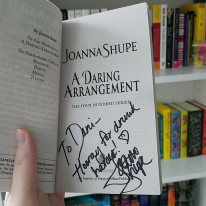

I already have a copy of Megan Frampton’s latest book, Lady Be Bad, signed from a romance trivia night held this past summer, but I haven’t read anything from Tessa Bailey or Tracey Livesay, so I bought the two books that The Strand had out for them, Too Beautiful to Break and Love Will Always Remember, so I could get the authors to sign them.
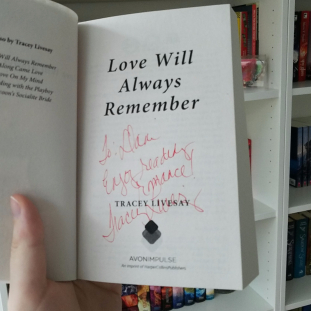

Actually, The Strand pretty much ran out of books at the event. I got the second to last one of Livesay’s book, and there were maybe four of Bailey’s book left, and that wasn’t even the one they had a poster of, Disorderly Conduct, which was the one I actually wanted to get. I’m not sure if they didn’t even have that at the event or if it just went quickly, but yeah. The Strand needs to be prepared for readers who like to buy romance!
I’m sure this is no surprise, but all of the authors were super nice and it was really nice to meet them. I felt a little awkward walking up to them because there wasn’t a traditional signing line, but it was also a good change because you got to talk to them a bit instead of just being shuffled along.
The whole event was excellent and I enjoyed it a ton. I always tend to enjoy book events, especially romance ones because romance readers make up such a great community, but I thought this one was especially well done and had an excellent discussion. If you’re interesting in viewing the full panel for yourself, you can watch it on The Strand’s YouTube channel here. It really was a great panel!
So yeah, I had a ton of fun and I’m so excited to go to another romance event! I’ve been really spoiled the last couple of weeks between this one at The Strand and the one last week at Word with Alyssa Cole and Alisha Rai. And now I’ve got a nice new stack of romance novels to dive into
